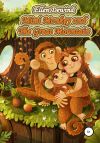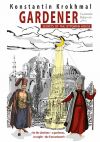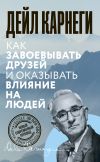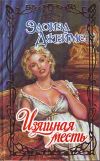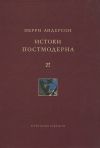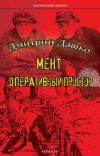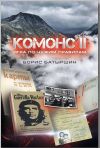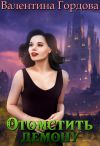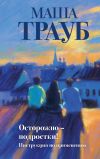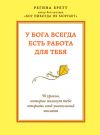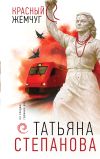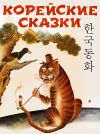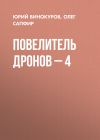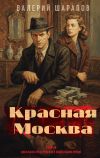Текст книги "Khon Yush. Way From the Ob"
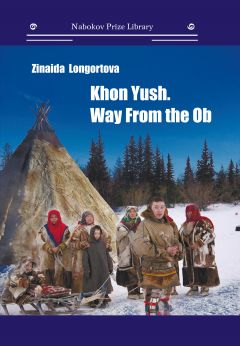
Автор книги: Зинаида Лонгортова
Жанр: Историческая литература, Современная проза
Возрастные ограничения: +16
сообщить о неприемлемом содержимом
Текущая страница: 3 (всего у книги 14 страниц) [доступный отрывок для чтения: 4 страниц]
Children and their mothers cheerfully jumped over the smoke purifying flesh and soul, saying:
«Shanaku, ponaku! Put some luck!
Shanaku, ponaku! Put some luck!
Shanaku, ponaku! Put some luck!»
Khutline picked up the newborn, jumped over the fire three times, and repeated after the children:
«Shanaku, ponaku!
Shanaku, ponaku!
Shanaku, ponaku!
Kaltashch Anki, give healthy legs and arms to my Altam evi!
Let her play while grandfather walks for prey!
Let her live a long life while her grandfather's checking fishing nets!
Let her sleep soundly while her grandmother does the needlework!»
«Let Sorni Nye, that walks among us invisibly, marks the name of my daughter in her writings – Khatan evie,» Levne was full of happiness, satisfied with the ritual.
Following the customs of children initiation, she didn't forget about gifts: threw a large beautiful shawl over Khutline's black hair. She bought it when she was young at the Obdorsk fair: noisy, cheerful, where the merchants exchanged furs and meat to the things Khanty women desired: cast iron boilers, needles, jewelry, and much more.
Today there were no merchants, and no cheerful fairs. The inhabitants of the taiga outback wondered where did they go. None of them could know that those wealthy merchants were either destroyed, or exiled to the most distant parts of the USSR.
And the holy city of the Khanty princes Taishins – Pulnavat Vosh, which was located at the exit of the Poluy River on the Ob, has already been renamed several times. But he was subject only to the Khanty gods, located just below the city – this is what from generation to generation the Khanty people respectfully passed on to their children. The Great Turam assigned his best sons to rule since the advent of land, when the sacred bird Gavia pulled this land from the sea, and called the fiery river cape Lunkh Avat. They protect the ancient settlement Pulnavat Eokh from misfortunes. The sacred cape of the gods is revered even by wayward Nenets and other small nations living off the coast of the Ob. The gods sitting there were so mighty that no woman could even watch in that direction, not to mention stepping on that sacred cape with her filthy feet. Coming to the winter fairy, and passing the Lunkh Avat cape by in order not to disturb the gods, men had to sacrifice a deer. Then the Pulnavat settlement was populated by the Russians and Zyryans, and was renamed to Obdorsk. This is how they wrote it down in Russian papers, without even asking the owners of the land. After that the Taishin clan left the town, and settled above the sacred cape of gods. Long live this family guarded by great gods. The town was later called Salekhard. But for Levne it was still the town of the Grand Prince, who was paid by her grandfather and great-grandfather. Passing through or by, each Khanty man had to bring a gift – toss a silver coin into the clear water of the Ob. Those who passed Lunkh Avat by and moved further, had to bring a bloody sacrifice.
Levne put four more needles with reindeer stitches for sewing and four red ties into the hands of Khutline – a shishkel for false braids for Altam anki, the third mother Khatan evie.
«Let my girl be a craftswoman, and in no way she knows what need is. When she grows up, a thin needle will cheerfully dance in her fingers, just like it dances in your hardworking hands, karkam Khutline. Now this is my daughter – Khatan evie, and your milk daughter – Altam evi! While you are waiting for your master, your little birds are always welcomed in my house. Today, five mothers love and cherish our girl on Khanty land – Pukan anki, Perna anki, Altam anki, and me, her mother. Kaltashch Anki herself will be protecting her from heaven».
Children were jumping and laughing, and then ate sweets.
Before Khutline entered her house after the initiation, she saw Kurtan iki at her doorstep. On the rights of a superior, being the foreman of the village, he entered her home, and took an old icon of the Virgin from the family hearth without hostess permission. Like all the inhabitants of the village, he knew that the family shrine was hidden in a chest along with the Khanty spirits since the red authorities destroyed the Russian church in Kushevat. Now the icon, transmitted from generation to generation through males in the family of the young shaman, was in the hands of Kurtan iki. Khutline knelt before him, reaching out for the defender of the family, but Kurtan iki kicked her out of his way with his foot. As he kicked her, the woman remained lying on the ground, howling sobbingly, but covering her mouth with her hands so that no one would hear. If anyone finds out that she hid an Orthodox icon in her house and worshiped it along with the goddess Kaltashch, everything would be over for her and her children.
Khutline didn't remember how long she lay at the threshold of her house, what she was thinking about, left without a husband and without a defender, but the next day, without a shadow of fatigue and despair, she went fishing with her eldest son.
«No one should feed my family,» the woman decided, «I am not a helpless child.»
She had a boat and oars left after her husband, and family gods sitting in the sacred chest. Wouldn't they give her strength and mind to rise to her feet? She had strong arms and 3 children.
«I am their mother. Their father entrusted me with the most precious thing – their children. Why should I torture my little birds and wait until they bring us fish home? I can't be full of someone else's piece,» she decided.
No one came from the village council to inquire about the icon.
«Kurtan iki did not take the icon to the authorities, which means that he stole the shrine from his cousin. What a sin,» Khutline was dumbfounded.
«How could this atrocity happen? In a different time, the elders of the thief's family would have chopped off the whole hand at the sacred fire. Now they are allowed to do anything,» the young woman was horrified.
Exactly one year later, on a bright summer night, when the sun crouched at sunset to have some rest and move along the sky again, and everyone in the village fell asleep, someone quietly opened the canopy of the house where Khashkurne and her husband Kushta iki lived. The guest coughed quietly, like all people did according to the Khanty tradition if they entered the housing with good intentions. Khashkurne slipped out of the canopy like a small ermine and gasped:
«Ashieh! Dad!»
It was Lylan Luhpi shepan iki sitting at the entrance, inaudibly, quieter than the arctic fox, bending one leg. His weathered face was dark, like the inner side of a spring birch on which women loved to scrap out bizarre ornaments.
The malica of the great shaman was not even torn, but completely tattered.
«Hush, daughter, don't scream!»
Khashkurne clasped her mouth in her hands and rushed to her father.
«Everything's fine, daughter. I'll sleep with you a little and get home tomorrow.»
Sleepy Khashkurne's husband went out as he heard the quiet whisper from behind the canopy. Seeing his father-in-law, silently, without any surprise, he approached Lylan Luhpi shepan iki, and greeted him as if he knew for sure that his wife's father would return home. The great shaman rose and, taking the head of his young son-in-law, kissed him on the cheeks three times.
– Set the table, mistress. My father-in-law is tired after a long journey, so make a bed for him!
Inviting the long-awaited guest to the place of honor in the house, he sat next to him. Khashkurne set a tea table at her father's feet. As a sign of respect, Kushta did not start the conversation first, he waited for the great shaman to tell how he returned home, and how he escaped from the people that wanted to destroy the soul of Lylan Luhpi shepan iki. The guest silently drank the first cup of slightly warm tea. He forbade to make the fire in the house: they didn't want curious eyes and ears. After drinking the second cup of tea, he threw a hungry look at the plentiful table that the daughter had covered, but only grabbed a khul voy with his fingers, slowly chewed it, broke off a piece of bread and said:
«I was the only one to get out of that prison in Salekhard. The rest were sent to distant lands, the lands I've never heard of. I didn't rush home, as they could grab me and send me to prison again. I got a little confused at the beginning of the journey. The spirits closed the road for me, did not let me go home, protected me from all sorts of misfortunes and from the hands of the new government. I went to the forest side. It seems that our gods were afraid that they would again take me to prison. I spent the winter in the hunting house on the Pole, people helped me. I even brought a child to his feet. He was dying, got a meat piece in the wrong way. The spirits helped me cut the throat with a hunting knife. The child swallowed air and came to life. Turam helped me every day, he didn't leave me alone with my troubles. For a long time I was treating the boy, and he recovered. His parents hid me in their ancestral lands for the winter. Kind people gave me a hunting belt with a knife, since mine was taken there in prison. In the spring, I crossed the talnik islands to the Ob. I spent spring a little higher than Palvoshkurt. There was a lot of water. I didn't cross the channels and rivers in spring water. I walked slowly, in no hurry. This spring was good: a lot of ducks and eggs. I was waiting for summer. As it became warm, after the ice drift, the moon was born again, and I moved home. In one moon growth I have overcome the path to you. It's up there in the sky, transparent, rounded, full, going to decline tomorrow. The water was high, so I had to circle and cross small rivers. It was difficult with the fowl, but the knife helped a lot, thanks to the good people…
Now I am on my land. Tomorrow night, I'll start my way home!» «My dear father-in-law, I'll take you home on my boat. You can't move on a long journey when the moon declines.»
«Don't worry, son! I know the road well, and I won't rush. Otherwise they will find me and take me again. I will leave some time traveling. We must not show up in public, it's dangerous for your family».
A baby cried in the canopy. Khashkurne rushed inside to calm her son.
«A son? Daughter, give my grandson to me!»
Khashkurne came out from behind the canopy with a night cradle, happy with her first motherhood, and gave her baby to her father. Lylan Luhpi shepan iki put the cradle on his knees, and kissed his grandson soundly. He looked at his grandson, and his face again became gloomy, as if he had seen something terrible. He gave back the cradle with his daughter's child:
«Rejoice that you have a baby. Let him know that for him you are the sun, the moon, and the stars. May joy and happiness not leave his heart. Let him be happy with your love. Thank Kaltashch Anki for the child, who bestows the children with one hand and takes the souls of children with the other. Maybe she'll feel sorry for you, and give you more children.»
The next day, when everyone in the village was already asleep, the great shaman fluttered out of his daughter's house, like the shadow of a polar night owl, and slowly headed along the canal, lurking in the bushes towards his native village. There were fifty kilometers left, and he was in no hurry. He was carrying a large bag of groceries. There was enough food for a long journey, and the shaman was good at distributing food throughout the way. A summer trail was winding and dangerous. There were several rivers along the way, swamps, and a trip across a large litter of a river called Pilyokhlor. This path was not difficult for him. His soul bubbled like a big lake full of fish, and boundless joy burst out.
These were his native waters and his native lands. This was the land where he was born, breathed air for the first time. He was at home.
Secretly, like a driven animal, and yet without losing his inner dignity, he walked through forests and swamps. Not a single person on this land could give him to the authorities: hearing the name of Lylan Luhpi shepan iki, people bowed or lowered their eyes as a sign of respect. The shaman, however, made his way through the forests, hiding from people. It was important for him that no one was hurt through his fault. He walked along the mossy forest paths, leaving no traces. He overcame talnik windbreaks like a white sacred ermine, passed unfamiliar paths like a light, quiet arctic fox. He didn't look around from fear, like a hare. His soul did not howl like a wolf, but sang, murmuring, like a hasty forest brook – a soim shimmering with all the colors of the rainbow, the one that hurries to the great river As.
He didn't look for an easy way; his natural instinct of a hunter told him where to move, where to turn. He walked without fear, like a brown bear in the forest. He was in a hurry to his native nest, to his small warm house standing under the centuries-old evergreen cedars, which had remained from his grandfather. This is where he took in the taste of the motherland with his mother's milk. He was a free man, and there was no sin on him. Otherwise why would the Almighty Turam help him? The sacred shaman's gift was also sent from heaven. How could a little man resist the will of the gods?
Winter
The settlers who lived in the dugouts, were sent to fishing in the summer, and in the winter they were sent out to the village to work on a timber work area. Although the trees were rare and not large, in some places in the forest tundra, on good soil, larch trees grew quite high, and were suitable for building houses. Fine wood was laid for firewood. They didn't complain, they tried to do any job accurately and quickly, with the hope that they would someday be released home. Now they were settled seven kilometers higher along the Ob from the village of Pitlourkurt.
In the dense woodlands, among the swamps, new houses were being built. Axes were pounding, saws rang from morning till night. The village was still small, but was quickly built.
The wood work area was near the forest road, and the exiles were often surprised:
«How could a well-trodden road appear in this wilderness, and why would the Khanty people need it, if they only ride deer, or boats in summer? Even hunters do not step on a wide path.»
And then a hunter came out of the woods past the exiles and stepped onto the wide path. He nodded to the women as a sign of greeting, crossed the road, and went hunting, skiing along his own track towards the village. His hunting belt was all hung with squirrel carcasses, and a fox tail flashed red.
There was a considerable state plan for collective households, that's why hunters stayed in the forests until late. The moon slowly sailed after a man in a light malica with a hunting belt and bear amulets.
While the hunters were fulfilling the daily plan, bypassing their lands, the day tended to night, so the caring moon zealously illuminated the dark paths of accurate Khanty hunters. Countless stars scattered across the sky flickered joyfully, showing travelers the way.
In some places where special settlers worked, the road expanded. The horses harnessed to the sled, loaded with small logs, calmly dispersed and continued their way. Women often looked at that crawling curved road. What was there, behind these lands and swamps? Was it possible to get home through it? And again they lowered their eyes to the screeching saw in their hands.
«The Khanty say that the road is in these forests for many centuries, maybe five centuries, maybe even more. They say that Ermak, the Don Cossack, came here to conquer these roads in ancient times. And then Russian peasants came here along the beaten track in search of a better life, as well as convicts in shackles escaping from authorities.»
«I heard,» answered Pukan anki, «I read at school that before Ermak Russian merchants took silver sable, white fox, snow ermine, squirrels and other furs and brought it to the royal chambers. They took soft gold, paying with firewater only. God knows how they survived to this day. Local residents regularly paid yasak, so the tsar issued a decree not to exterminate foreigners. He banned the import of alcohol into Siberia, so as not to accustom the people to hard drinking. But even under the risk of death, merchants who were accustomed to free furs from illiterate foreigners, brought the terrible potion into swampy impassable lands.»
«You don't know what was going on here after the revolution! Everything was taken from the local population: furs, fish, meat, they didn't even leave firewater in exchange. And then, when they divided power in Russia, the white fled through the taiga to reach the Ural Mountains, and the red, catching up with them, established their order in the taiga mountains. They say that people were trampled down like grass, chopped down like firewood, and there were so many indigen people killed that the villages were almost depopulated.»
«Yes, there are few of them now. In some villages, there are up to five or six families. Apparently, there are so few Khanty people because they were exterminated in dense forests.»
The women looked again at the well-compacted road.
«They say that the road stretches to Tobolsk itself, past which we were taken. How much does it take to get to the Siberian capital?»
«Don't say that! Hush! Be quiet, or someone can hear you!» Whispered Pukan anki, the godmother of Khatan evie.
«In winter, the road for coaches runs down the Ob River, this one is kept only for the off-season. In autumn there are water openings (polynya) along the Ob, especially if there is a lot of snow, but still people go along the river. Until the very spring, deer argish and horse teams go until the ice is gone.
„Seems like the Khanty don't like the forest road. They call it the Royal Road.“
„Why would they like it. It brought so many troubles and adversities!“ And the women again began to cut trees.
Blizzard January and frosty February were particularly difficult for women and men at the timber works. Dark December wasn't easy for half-naked people either. They cut trees knee-deep in the snow, then pulled them out onto the wide road, and loaded them into horse-drawn sleighs. Wearing old sweatshirts and torn clothes, all day until dark they silently did the work they were told. Fortunately, it's getting dark early in winter, and the moon does not always illuminate the pain and suffering of people, so they were released home early. The couldn't stay in the dark forest, after all, they could run away.
A silent night star has seen much in its lifetime. Looking at the martyrdom of people from heaven, the moon was happy to melt within a week: it couldn't stand all of that earthly grief.
In recent years, those who made friends with the locals got warm fur kits. The settlers exchanged them from local Khanty women for beads, then for bright earrings. Pukan anki of the little Tatar worked in her kits covering her knees. Levne gave her friend fur boots two years ago. Quietly, before the guards saw, she laid them by the woodpile and sprinkled them with snow. The midwife of Khatan evie could only take them and put them at the wood works.
The woman quickly learned to care for boots with long boot-top. The main thing was that she needed to put grass insoles not only for heat, but so that they absorb moisture, and, of course, dry in time, kneading wet soles with her hands. Pukan anki looked well after her boots, and therefore Levne replaced her kit soles only once, the previous summer, sewed new ones and said:
„You care for your kits like a karkam, a dexterous Khanty woman. You can wear them for another two or three years.“
That day women have already complied with their norm. They were standing near horses laden with forest and talking:
„They don't even spare a pregnant woman, though she will give birth soon,“ Pukan anki pointed at a young woman who raised a felled tree to drag it to the road. „She'll give birth right in the snow.“
Looking down at the ground, the godmother said:
„We've already built a new village, but there is no freedom. We have to come every day.“
„We are fine, we have boots and sweatshirts. Women from the second brigade who were sent to the Kunovat river last year were all wearing shoes. They were urban. I wonder if they survived or not? It's good if the local Khanty shared their clothes, but what if there were no people there? Frost penetrates the skin, and your whole soul aches.“
„How many winters and years have passed since they sent us into these snows?“ Pukan anki pulled up her kits, carefully brushing off the adhering snow so that they would not get wet.
„It's been five years I guess!“ answered the godmother.
„Well, yes, the girl, our little Tatar, survived among the Khanty on fish. She's been almost five now, and she's only talking their language.“
„I also saw her, she's already big. I thought it was their child running around in a headscarf, in local clothes. But they said it was the little Tatar. They recognize me, call me Godmother.“
„I pray for their family every day, because they called me a midwife. When Anshem iki brought me a knife and mumbled something on their language, I got scared. I thought he came to kill me. But he shoved the knife into my hands and left.“
„Well, yes, now we know their customs. He gave me the cross, remember? I could be sent to prison for it. I was crossing myself, fighting off, but this heathen put it in my hand and left without crossing. I tried to hide many times, but for some reason I'm afraid to throw it away.“
„Keep it,“ her friend reassured her, „maybe this knife and the cross are mercifully saving us in these forests.“
„The Khanty say we protect the girl, but maybe it's the girl and the gifts from strangers that protect us among these snows?“ Khatan evie's godmother looked at the road with a blurred look.
„Why strangers? These are now our relatives, the parents of our goddaughter,“ protested Pukan anki, who was flushed from frost.
Soon the foreman came on a horse and a sled loaded with firewood, and went towards the new village. Countless villages have appeared all over the North. How many people the new Soviet power drove from their native lands?
In the old days in Russia there were villages and towns, now there were settlements. This word always came from convicts, settlers who had been driven to Siberia even in tsarist times. Now the Soviet government was doing the same.
Another hunter went to women's workplace, returning home with a hunting belt full of different game. The hunter stopped to rest, leaned on a ski stick, and cheerfully greeted the lumberjacks:
„Vushcha ulat! Juh evatty hojatat.“
„Hello, Juhur!“ The women were delighted.
„I'm sure you've already fulfilled the production plan for fur ahead of schedule! Your belt is full every day. We saw your photo on the board of honor!“
„Little more! Pa voi, look for ooh velam tail, mohty hun moshatlen! The beast also has brains, not easy to get it.“
„Well done! You are young, but have two children and you are the best worker already!“ Talkative women understood little from his answer.
Far away, on the other half of the Ob, a deer argish appeared. A large herd of deer was following the sledges. Yuhur hurried home.
„Look,“ Pukan anki pushed the godmother of Khatan evie, „the reindeer herders are returning.“
„I wonder if the Ob is all frozen? Yesterday, people said that the water around was open. The river is insidious, the current is fast, and the wide Ob freezes unevenly.“
„Yesterday I went to get water, at a stony roll over, and the current is still seething. How do they feel that the ice is frozen?“
„So they wander. They never sit in one place: they go where the deer is,“ the women were talking, sitting on the wood.
Onas slowly crossed the wide Ob, still covered with thin ice, approaching the Royal Road. In Pitlourkurt, only chimneys peeked out from under the soft snowdrifts. Villagers also noticed the reindeer herders, and sent the children to tie the ubiquitous dogs.
„Tie dogs, or they will disperse the herd! How do you catch a deer then?“ The children ran after the village dogs that ran away towards the reindeer herders. Village hunting huskies made such a noise that everyone, from the smallest to the oldest, came out into the street. Everyone wanted to see the reindeer herders getting to their winter camps. All Pitlourkurt residents had sons, parents or just relatives among them. Each family had a few deer: some had one or two, some even more. Everyone was waiting for good news.
Soon all growling and barking dogs were tied. Dumbfounded dogs tried to break their leashes, not hearing their owners shouting.
Reaching the wide Royal Road on the Ob, Onas stopped at the village.
„They got to the Royal Road, now it will be easier for them to go further!“
The villagers hugged with relatives, the old people took turns kissing the younger, greeting them.
„Grandmother,“ Tatya asked Levne, „why is the road called Royal?“
„I don't know, granddaughter. They say that in the old days the Russian tsar paved the way for our villages.“ He liked beautiful sables, that's why his merchants went on this road. Now they transport fish and furs without a stop.»
«Instead they bring sugar, flour, salt, and tobacco to our village,» Khutline joined the conversation.
«That's why we also need this road. One bad thing is that dogs are not used to passing carts. They bark day and night.»
«And now the road is called Royal because it's convenient for us. Walking along a well-paved road is easier: you won't get stuck in snowdrifts.»
«Let's go home, we are waiting for guests tomorrow,» said Levne to the girls, «the reindeer herders will come.»
People moved to their homes.

